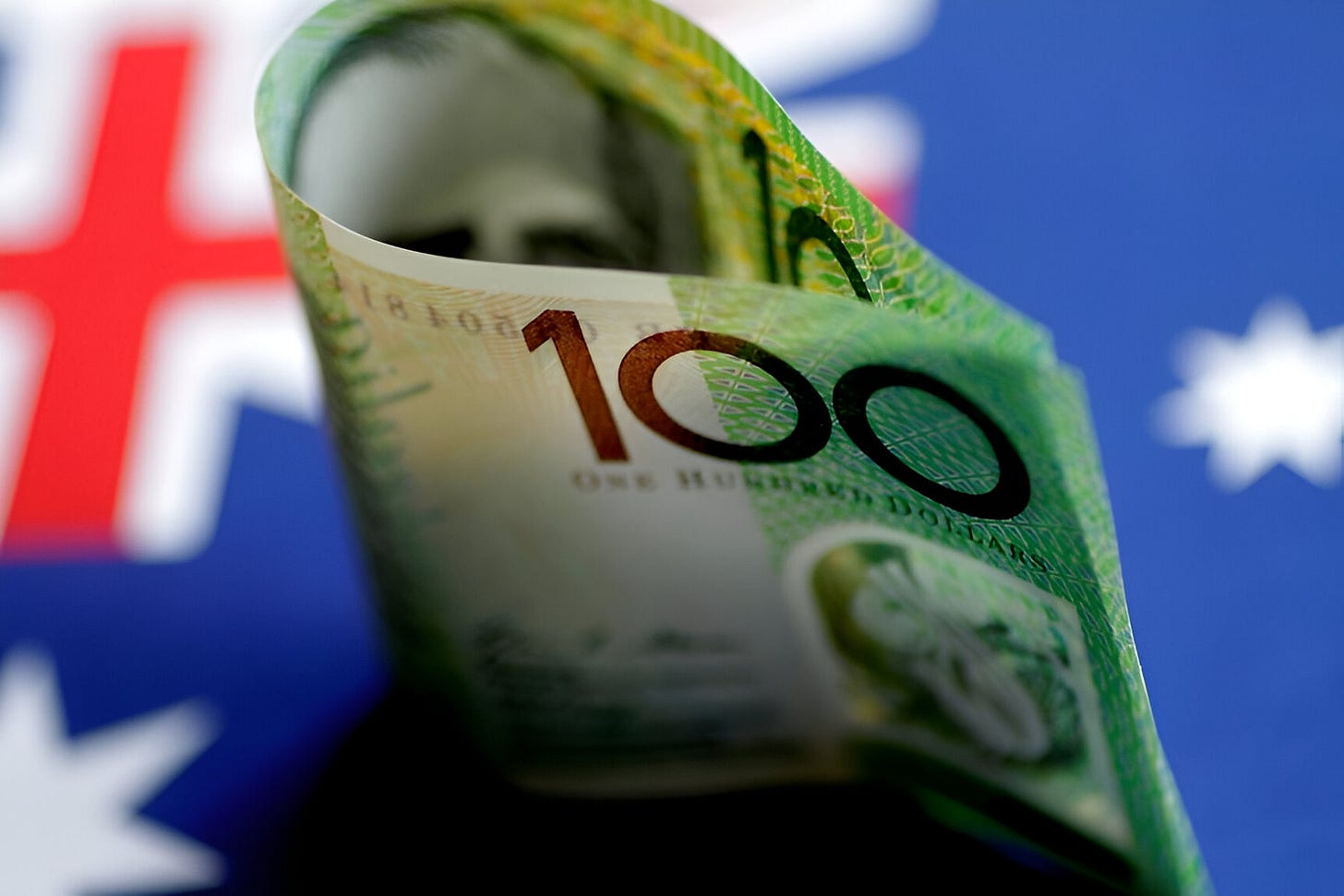Table of Contents
Tom Valcanis
Life-long politics tragic, digital marketer and writer. Articles in the Age/SMH, the Big Issue, the Spectator, and editor of alt lifestyle mag Hysteria from 2016–2020. An advocate for free speech, free markets, and small government.
If you’re in need of a dark, bitter laugh – the kind inspired by a gnawing existential dread – I have a recommendation for you. Browse the r/Australia or r/Australian sub-reddits.
If you imagine each person is at a given state of evolution based on their knowledge of finance and economics, the majority of these sub-redditors are like the chimpanzees at the start of Kubrick’s 2001: A Space Odyssey – dimly aware of their needs and wants but not quite smart enough to realise their own sentience.

That’s what the left represents in Australia. They almost get it but fall short, as if they’re pre-emptively enacting Orwell’s doublethink, cancelling out any thought that may contradict what the Party tells them. (And yet, according to them, anyone right-of-centre is programmed by Sky News after dark and News Corp mastheads.)
Here’s one PhD of microeconomics complaining about the prices of breakfast in Sydney:
Popular BREKKY-coffee place, Sydney North West: it was recently purchased by a new owner so I wanted to check it out to see what’s new. Ordered salmon benedict for $28, and what do you think? Two eggs lazy thrown on a soggy toast, with a bit of sauce and spinach on top that tasted like crap. HOW IS THAT FARKING $28???
By way of Adam Smith, I’ll tell you how. Many people look at the retail price of each individual ingredient, do some quick mental sums and give everyone the old self-righteous “I could make this better at home… and for CHEAPER!”
Despite living in a supposed liberal democracy and market economy, civics, basic economics and finance lessons aren’t mandatory.
Ok, but do you really want four servings of amateur-grade salmon benedict at a whim? Your utility for salmon benedict – nay food in general – hasn’t increased compared to what’s on offer at this north-west Sydney café. Your ripoff merchant café has to make a profit despite the cost of goods, rent, and labour, and also absorb externalities like the government wanting its cut. Thanks to living in a worker’s paradise, the labour component is likely contributing significantly to the price. Small cafes also order fewer goods, which means the goods have higher prices per unit than, say, an industrial food service business.
Associate Professor OP (that stands for Original Poster, for the blissfully unaware) continues:
Korean restaurant in a shopping mall, Chatswood. For under $13 I got a big bowl of tasty kimchi rice with tasty (!) stir-fried beef on top, with some green veggies. Took 30 seconds to prepare, I didn’t even have time to walk to the table and it was ready. HALF A PRICE OF THE FARKING SALMON BENEDICT THAT I DESCRIBED EARLIER!!!! Two times more food, ten times better tasting, TWICE CHEAPER!
Oh no, an entire 30 seconds to prepare! Their stupid efficient chef with three years of culinary school under his apron is clearly a moron. Time is money so therefore less time equals less money! Remember: HALF A PRICE OF THE FARKING SALMON BENEDICT! Kimchi is only chilli fermented cabbage and onions which can be kept for months in a climate-controlled environment and likely imported from overseas. Dare I argue with this logic? “Two times more food, ten times better tasting, TWICE CHEAPER!” I think they mean half the price, but then again, I’m not the Deputy Governor of the RBA like this guy. Oh yeah, and beef per kg is almost a third of the price of salmon per kg.
Despite living in a supposed liberal democracy and market economy, civics, basic economics and finance lessons aren’t mandatory. I would say this isn’t a mistake, but good policy if you need the broadest possible coalition of supporters to usher you into power. Bad behaviour is almost always rewarded by the electorate (c.f., Victoria since 2014) as political scientist and co-author of The Dictator’s Handbook Bruce Bueno de Mesquita et al sums up:
Imagine that the leader has a pool of $1,000 with which to provide goods and that spending the entire $1,000 would produce a public good worth $20 to everyone in society. If a winning coalition requires only ten members of the selectorate, the leader can offer each of them up to $100 of private goods which they would prefer to the public good. If a winning coalition requires a hundred members of the selectorate, the leader can only offer each of them $10 of private goods and they would prefer that she provide the public good. The pool of resources devoted to private goods is spread more thinly as the size of the winning coalition increases, and so producing more public goods becomes a more attractive way for a leader to produce value for the members of her coalition.
If a leader needs to spend enough of other people’s money to secure that glorious 50 per cent plus one vote needed to win, they will. Feather the nests of your supporters, your detractors be damned. Ideology? How 20th century.
Imagine each person is at a given state of evolution based on their knowledge of finance and economics.
It isn’t good politics to help all the people all of the time. Any good entrepreneur realises the opposite is true. Hence why we should get politics out of the market as much as possible.
So, do the two major parties really want to educate the citizens on how this all works – or let them keep pretending a $28 price for salmon benedict isn’t the effect of a spontaneous confluence of market factors, but a grand right-wing conspiracy to bilk middle class uni graduates out of their hollandaise-smothered birthright? I think we know the answer.
This article was originally published by Liberty Itch.








